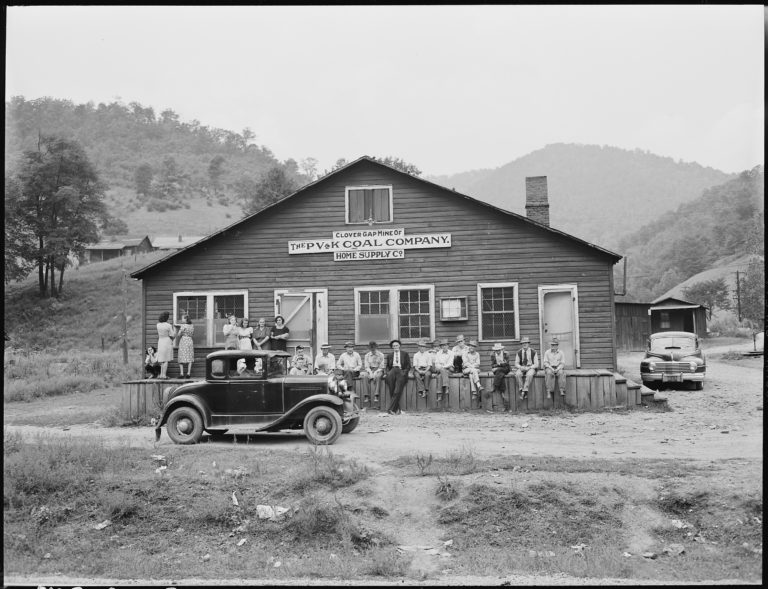This reply critically analyzes the concept of “solidarity” in Caroline West’s account of the role that a Universal Basic Income (UBI) could play in Central Appalachian re-development. I argue that a robust structural form of “solidarity” would necessarily play an essential role in formulating a political bloc capable of implementing an ambitious project like a UBI. In addition to this implicit role of a structural form of solidarity that can connect various communities and constituencies together into a powerful political bloc, Caroline West also articulates an important role for highly local forms of community and solidarity in this region’s transformation. Given the two distinct ways that “solidarity” functions in her account, I raise questions about how the formal features of a UBI relate to both its local and more structural forms.
Keyword: United States
1983—Stuart Hall Visits Australia and North America
Throughout 1983 Cultural Studies continued to spread outside the United Kingdom, spurred by Stuart Hall’s tour of Australia and parts of the United States where he presented lectures connecting current ideas of what it means to study culture in often disparate and intense political climates across the globe. Myriad publications published in 1983 provide insight into how Cultural Studies circulated among scholars in varying disciplines while still in its infancy. This article situates Cultural Studies primarily within a North American context focusing on the pivotal event of the year: the teaching institute held prior to the 1983 conference at the University of Illinois where Hall delivered what would be eight influential lectures in the field of Cultural Studies. Further, I provide insight into an understudied conference held in Australia where Hall’s impact led to the birth of an Australian Cultural Studies journal. Finally, I provide an overview of some of the pivotal publications of the year, connecting ideas of hegemony, power and dominance, reflexivity and Marxism within a western context.
Killer Drones, Legal Ethics, and the Inconvenient Referent
I offer a close reading of the legal and political discourses by means of which the United States government recently has sought to legitimate its use of weaponized drones to carry out targeted assassinations of suspected anti-U.S. combatants abroad. Situating my analysis in the context of philosophical approaches to the problem of truth and linguistic reference, I examine official government speeches, legal documents, and reports of civilian casualties. My semiological critique of these texts is carried out both within and against the “humanitarian” framework of just war theory, my dual approach being necessitated by the twofold strategy of the government’s justificatory rhetoric: on the one hand, the government’s public discourse distorts the accepted meaning of certain unambiguous and pragmatically functional legal signifiers (the jus ad bellum use of terms such as self-defense, imminence, and necessity, for example); on the other hand, it exploits the uncertainty that is endemic to some of those very same terms (necessity and proportionality in particular) when they are used to refer to the jus in bello quantification and valuation of incommensurable variables—of, typically, a particular number of civilian casualties relative to the amount of “military advantage” to be derived from the attack that “unintentionally” produces those casualties.
From Company Town to Post-Industrial: Inquiry on the Redistribution of Space and Capital with a Universal Basic Income
This paper considers what effects a universal basic income could have on disrupting social and economic inequality in the tensions of urban/rural divide. She frames her inquiry on the political economy of land and labor in the collapse of coal industry “company towns” and its structural aftermath in Central Appalachia.
Review of Measuring Manhood: Race and the Science of Masculinity, 1830–1934 by Melissa N. Stein (University of Minnesota Press)
Melissa N. Stein’s Measuring Manhood tackles the complex intersections of race, gender, sexuality, and their attendant “sciences” across a century of US history. While the burgeoning fields of ethnology and sexology were equally prominent in Europe during this period, her focus on the US specifies the ways in which American “racial scientists” and sexologists differed from their European counterparts, as their research was often used to justify or bolster nation-specific cultural norms and legislation. The concept of masculinity was not simply a matter of “manhood” in the narrow sense, but carried with it a glut of other associations: humanity, civilization, citizenship, intelligence, morality, whiteness, cisgender heterosexuality, and middle-class restraint. Stein manages to convey the complexity and reciprocity of these constructions in each chapter with careful argumentation and ample examples.
Review of Civil Racism: The 1992 Los Angeles Rebellion and The Crisis of Racial Burnout by Lynn Mie Itagaki (University of Minnesota Press)
Lynn Mie Itagaki contributes to cultural and comparative race studies by uncovering the implications of what she calls the 1992 Los Angeles Rebellion—a constellation of events spurned on by the Rodney King verdict—for intersecting groups and communities including women, immigrants, Black, Asians, and Latina/o-Americans. Each chapter provides a different context (family, education, neighborhood) for structures and discourses that perpetuate civil racism, while at the same time illuminating specific acts of resistance and subversion that occur, in each instance, through media, activism, and art. Itagaki’s methodology moves beyond critical literary analysis to provide important social commentary and critique that will prove useful to interdisciplinary scholars seeking to learn about racial formations in the neoliberal U.S. context.
Review of Reality Bites: Rhetoric and the Circulation of Truth Claims in US Political Culture by Dana Cloud (Ohio State University Press)
Dana Cloud’s marvelous new book provides just the sort of deep understanding and practical guidance needed for thoughtful and effective political engagement in the Trump era. In three fascinating case studies, Cloud demonstrates the impotence of naked facts and the power of mediation. First, she compares the cases of Chelsea Manning and Edward Snowden, both of whom leaked classified information in acts of patriotic resistance. Second, in a chapter on the 2014 television series Cosmos, Cloud seeks to explain the show’s enormous rhetorical power. Third, Cloud compares the revolutionary rhetoric of Thomas Paine’s Common Sense to that of the Black Lives Matter and Occupy movements. As we live through the devastation wrought by a Trump presidency, as we seek to make sense of it all in our scholarship and our classrooms, as we resist his attempt to reengineer of reality and search for ways to reassert our own reality, the reality of the people, Reality Bites comes not a moment too soon.
Review of Media and Culture in the US Jewish Labor Movement: Sweating for Democracy in the Interwar Era by Brian Dolber (Palgrave Macmillan)
Brian Dolber comprehensively explores the cultural and media-related developments of an important American social movement during its most transformative time: the varying business enterprises, community associations, party structures, and social institutions that collectively constituted ‘US Jewish labor’ in the decades between WWI and II. Dolber infuses his historical analysis with a nuance and urgency that ensures his readers will neither complacently shrug off the interwar era as limited in its relevance to our contemporary conjuncture nor nostalgically long for a supposedly romantic period of leftist political organizing in the US Indeed, a tacit takeaway drawn from Dolber’s book is that activists today (especially those experimenting with alternative media and cultural formations) can benefit greatly from both the inspiring examples of past precedence and a sober acceptance of the potential pitfalls that can threaten their efforts.
Not About White Workers: The Perils of Popular Ethnographic Narrative in the Time of Trump
This essay rasies three concerns about popular contemporary ethnographies that focus on the rural and white “working class.” First, these ethnographies are not treated as partial accounts of cultural experience but are instead taken as straightforward political and economic analyses. Second, these ethnographies amplify an “empathy mandate,” which demands that our political actions center on trying to understand misunderstood populations—in this case, the so-called “white working class.” Third, by disarticulating the cultural markers of “working classness” from the material conditions of class, these ethnographies obscure the political significance of “working class.” Ethnographies of “white working class” experience may be useful only if we treat them as small openings that lead to bigger and broader stories, rather than as complete and transparent explanations of what is going on.
The Trump Wall: a Cultural Wall and a Cultural War
This essay decodes a Wall-DNA in American culture with an examination of two shaping moments in history, namely the Founding Fathers and the Mexican-American War. It argues that the Trump Wall, instead of protecting, endangers American values and opportunities; instead of uniting the nation, divides it and ignites cultural wars. The Trump Wall portends fear, bigotry, distrust, intolerance and disconnection; it is the Trump War. Therefore, this border construction is more of a mental construct than a physical one, especially when it involves a cultural re-landscaping and boundary shifting between the US and Mexico and within the two nations. The essay also challenges a one-dimensional and static view on American values, and calls for a 21st century sophistication for a culturally nuanced definition of what America means, and a 21st century agility to cross back and forth any walls without sparking a war.
Review of The Cultural Politics of U.S. Immigration: Gender, Race and Media by Leah Perry (NYU Press)
Leah Perry’s The Cultural Politics of U.S. Immigration: Gender, Race, and Media is a timely exposition of how our racialized and gendered immigration paradigms came about as well as what makes them uniquely neoliberal. Perry offers a meticulous account of immigration reform in the 1980s and 90s—including how it negotiated, accommodated and ultimately co-opted the gains of feminism and multiculturalism—while also showing how its discourses were refracted in popular culture and thus within the lived experience of a hegemonic neoliberalism. Perry’s analysis that will interest scholars of media, popular culture, and immigration policy alike, and that, in the true spirit of humanistic inquiry, reveals the work of culture in the circuitry of power.
Review of Family Values: Between Neoliberalism and the New Social Conservatism by Melinda Cooper (Zone Books)
Family Values: Between Neoliberalism and the New Social Conservatism. By Melinda Cooper. New York: Zone Books, 2017, 416 pp. (hardcover) ISBN 978 1 9354 08840. US List: $29.95. In an academic world flush with and made into silos by specialized topics, research articles, and books, Melinda Cooper’s interdisciplinary integration is a most welcome map of the…
Death on the US-Mexico Border: Performance, Immigration Politics, and José Casas’s 14
Jimmy Noriega looks to theatrical performance as a method for engaging the subject of “illegal” immigration and, in particular, the death of undocumented migrants. He argues that theatre can provide an avenue by which to generate both a private and public discourse that allows for a more nuanced and fair treatment of migrant death, which is especially significant in comparison to the representations offered by the typical media coverage. Rather than focus on several texts, this essay analyzes one play—14 by José Casas (2003)—and the ways it engages with mass migrant death and the myriad of responses to it.
Queer Provisionality: Mapping the Generative Failures of the Transborder Immigrant Tool
Alison Reed investigates the border- and boundary-crossing performance of Electronic Disturbance Theater 2.0’sTransBorder Immigrant Tool (TBT), an incomplete cell phone program that offers GPS, guidance, and poetry to those attempting to cross into the United States across the Mexico/US border. Reed suggests a provocation-based performance of “queer provisionality,” revealing the aesthetics of oppressive power structures by juxtaposing them to social utopias. Interrogating the national neoliberal project of both US liberalism and US conservatism, Reed’s essay is also a transcription of the performances launched around TBT, the social and political machinery set into motion by Electronic Disturbance Theater’s failed utopian project.
Whistlin’ Dixie
Whistlin’ Dixie seeks out folks at the forefront of the Southern queer music scene — living examples that queer community can thrive in these previously written off country roads and postindustrial cities. This documentary showcases these communities and examines their influences, challenges and motivations while putting a face on what it means to be queer, young and Southern.










